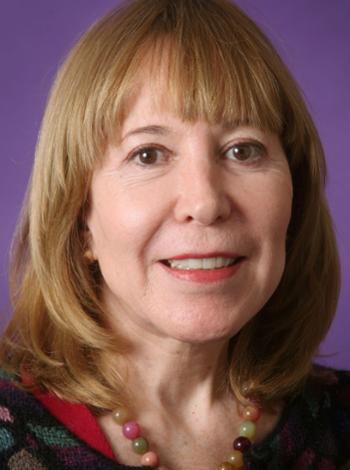 Pastoral Psychology by Carrie Doehring (Editor & Author), Nancy Ramsay (Editor & Author)
Pastoral Psychology by Carrie Doehring (Editor & Author), Nancy Ramsay (Editor & Author)Publication Date: February 2019
Dr. Ramsay is one of the guest editors of this particular issue as well as an co-author and author of two articles in this edition: "Introduction to the Special Issue on Military Moral Injury" by Carrie Doehring and Nancy J. Ramsay and "Moral Injury as Loss and Grief with Attention to Ritual Resources for Care" solely by Nancy J. Ramsay.
Journal Description: Pastoral Psychology is one of the oldest and most well established academic journals in the field of psychology and religion/spirituality. Since 1950, the journal offers an international interdisciplinary forum for the publication of original papers that discuss the work of caring for, understanding, and exploring human beings as persons, in families, in small groups, and in community. This peer-reviewed journal brings the best of psychological, behavioral, social, and human sciences research into critical engagement with pastoral concerns (local, institutional, societal, political, international, and other).
Editor/Author: Nancy J. Ramsay, Professor of Pastoral Theology & Pastoral Care
 Development and Validation of the Algebra Teachers’ Self‐Efficacy Instrument: Assessment of Algebra Teachers’ Knowledge and Personal Teaching Efficacy by
Development and Validation of the Algebra Teachers’ Self‐Efficacy Instrument: Assessment of Algebra Teachers’ Knowledge and Personal Teaching Efficacy by  Evaluating Quantitative Reasoning Strategies for Comparing Fractions: A Tool for Teachers by
Evaluating Quantitative Reasoning Strategies for Comparing Fractions: A Tool for Teachers by  Fostering Small-Group, Student-to-Student Discourse by
Fostering Small-Group, Student-to-Student Discourse by  Instructional Leadership in the Content Areas by
Instructional Leadership in the Content Areas by  Cultivating a Mindset of Civic Engagement among Young Adolescents by
Cultivating a Mindset of Civic Engagement among Young Adolescents by  Capítulo 16: Despedazando lo Común: De Testimonios Orales a Títulos Escritos in Interpretando Huellas: Arqueología, Etnohistoria y Etnografía de los Andes y sus Tierras Bajas by
Capítulo 16: Despedazando lo Común: De Testimonios Orales a Títulos Escritos in Interpretando Huellas: Arqueología, Etnohistoria y Etnografía de los Andes y sus Tierras Bajas by  Pastoral Psychology by
Pastoral Psychology by  Pastoral Theology and Care: Critical Trajectories in Theory and Practice by
Pastoral Theology and Care: Critical Trajectories in Theory and Practice by  An Innovative Whole Child Approach to Learning: The LiiNK Project by
An Innovative Whole Child Approach to Learning: The LiiNK Project by  The ETA Invariant on Two-step Nilmanifolds by
The ETA Invariant on Two-step Nilmanifolds by  Singular Riemannian Flows and Characteristic Numbers by
Singular Riemannian Flows and Characteristic Numbers by